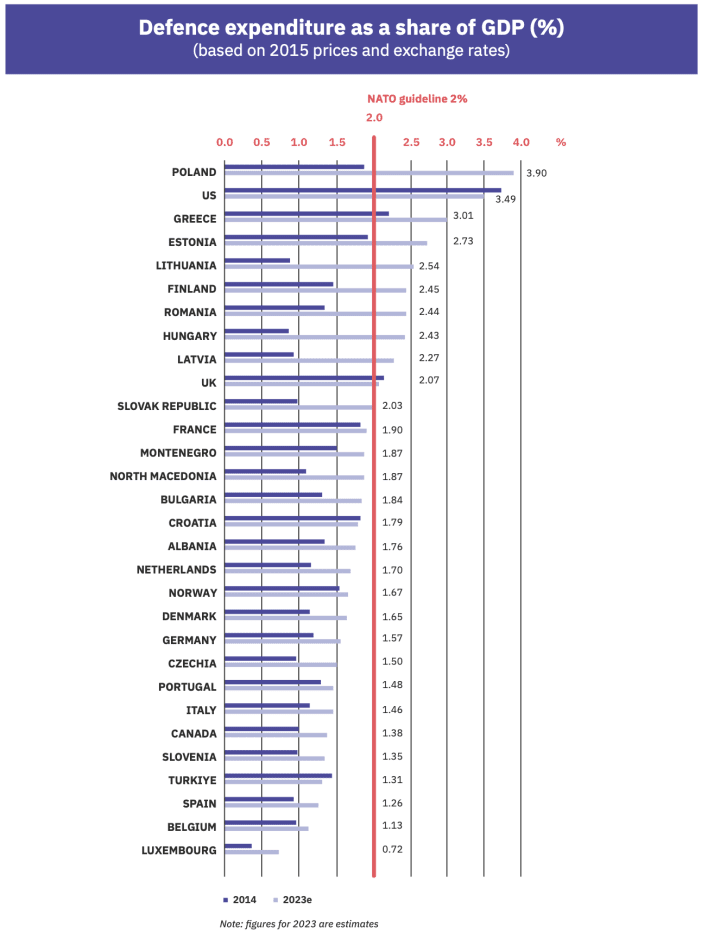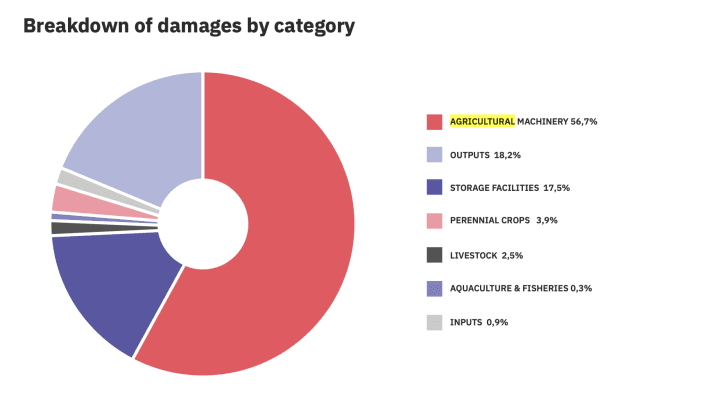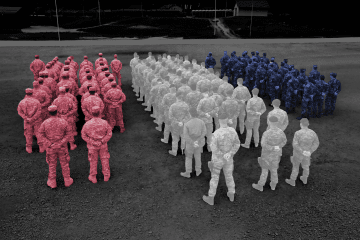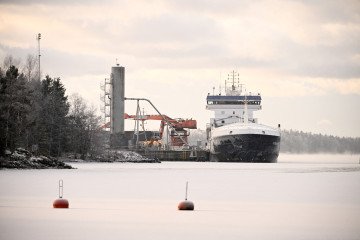- Category
- World
West’s Inaction on Russia’s War Against Ukraine Is a Gamble with Global Security, New Report Warns
-16bd8987b94c62598d65c144407d46ad.jpg)
As Russia’s full-scale war in Ukraine enters its third year, Western governments face a choice: act now or risk global instability. The West must sufficiently provide aid and arm Ukraine to win or face the consequences of unchecked Russian expansion.
The Friends of Europe think tank’s report Ukraine: Cost of Inaction warns that failing to support Ukraine could lead to geopolitical chaos, economic disruptions, and the erosion of democratic values. A Russian victory wouldn’t just redraw borders—it would embolden authoritarian regimes worldwide.
What are the key consequences of Western inaction?
Geopolitical: Russia’s ambitions stretch beyond Ukraine, threatening NATO’s eastern borders, including Poland, Romania, the Baltic states, and beyond.
Energy and food security: Ukraine is one of the world’s top producers of wheat and maize, and its war-torn farmland is crucial to global food supplies. Russia’s attacks on Ukraine’s energy infrastructure could trigger skyrocketing energy prices across Europe.
Human toll: Civilian casualties are mounting, with over 10,000 lives lost and millions displaced. Each day of delayed military aid means more innocent lives at risk.
By arming Ukraine, NATO can strengthen its eastern defenses. Ukraine’s integration into the EU would also enhance Europe’s economic and security landscape, making it a critical ally in maintaining global stability.
What will the future look like without Ukraine’s vital support?
Geopolitical consequences of Ukraine’s defeat
A Ukrainian defeat would embolden not only Russia but also authoritarian regimes worldwide. Russian dictator Vladimir Putin’s ambitions extend beyond Ukraine, with potential threats looming over NATO’s eastern borders, including Poland, Romania, and the Baltic states. The report also warns that the threat goes beyond there as well—to Finland, Sweden, and the central European region.
Russia’s Foreign Minister Sergey Lavrov made it clear: Moscow aims to demolish international security to establish a “new world order.”
Russia’s alliances with Iran and North Korea are tightening, forming the new “axis of evil.” Russia has launched over 8,000 Iranian-supplied Shahed drones at Ukraine. Iranian missiles have reportedly reached Russian forces. North Korea’s involvement surged in 2023, with deliveries of ammunition and missiles. Thousands of North Korean soldiers have been recently deployed to fight against Ukraine.
“As our adversaries align, we must do more to defend our country, our interests, and our values,” said British Prime Minister Rishi Sunak. “If all NATO countries committed at least 2.5% of their GDP to defense, our collective budget would increase by more than £140 billion ($182 billion).”

Russia’s 2025 war budget has hit a record $142 billion, with military spending now consuming nearly half of national funds. At 6.2% of GDP, Russia’s defense budget dwarfs NATO’s 2% target. And there’s no sign of this slowing down before 2027.
If we do not stop Putin in Ukraine, we will be inviting more violence and chaos across Europe.
Penny Pritzker
Special Representative For Ukraine’s Economic Recovery at the U.S. State Department
Geoeconomic risks: energy, food, and economic instability
Europe’s energy security, food supply, and economic growth are deeply tied to Ukraine’s future. Russia’s aggression has devastated Ukraine’s farmland, with over 25,000 square kilometers rendered unusable due to landmines, exacerbating the global food crisis. Even recent reports revealed that Russia stole Ukrainian grain once again—8,000 tons from the occupied port of Mariupol.
Before the full-scale invasion, Ukraine’s farmland covered 41.3 million hectares—about one-third of the EU’s total arable land. Russia’s aggression has devastated Ukraine’s agricultural sector, causing an estimated $80 billion in damages. Over 18,000 tractors have been destroyed, and one-fifth of Ukraine’s grain silos have been reduced to rubble.

The impact extends beyond Ukraine, with 345 million people facing food insecurity and 82 countries needing aid. Russia’s war has pushed millions of people worldwide to the brink of famine.
Russia is also waging an energy war. Attacks have destroyed 9 gigawatts of Ukraine’s electricity generation capacity, half of the winter peak demand. Former Naftogaz CEO Andrii Kobolyev warns that continued strikes on Ukraine’s energy infrastructure will lead to skyrocketing energy prices across Europe. “Russia is trying to wage a global energy war,” he said.
This April the Russian military destroyed the Trypilska Thermal Power Plant and since March 2022, they have occupied the Zaporizhzhia Nuclear Power Plant, Europe’s largest, turning it into a military base and increasing nuclear safety risks by storing ammunition and explosives there.
As winter approaches, Russia is preparing more strikes on critical energy infrastructure in Ukraine, including “targeting open switchgear at nuclear power plants and transmission substations,” said Ukrainian Foreign Minister Andrii Sybiha. The potential global repercussions of these attacks can be disastrous.
The human toll of inaction
We are fighting not just for territories, but first and foremost for people who are living in those territories.
Oleksandra Matviichuk
Head of Ukraine’s Centre for Civil Liberties, Nobel Peace Prize Laureate and Friends of Europe European Young Leader
Perhaps the most harrowing aspect of this war is its human cost. Millions of Ukrainians have already fled their homes, with many more likely to be displaced if the war continues. Europe’s refugee systems are stretched to their limits, and a larger exodus could overwhelm social services and create tensions within the bloc.
The civilian death toll, which has surpassed 10,000, continues to rise as Russian bombardments target Ukrainian cities. In Kherson, Russian forces have even taken to using FPV drones to specifically hunt civilians, turning the city into a deadly training ground.

We live every day in horror of losing our children.
Olha Tsaruk
A Ukrainian teacher
The future of Ukraine’s children is at risk, with around 19,500 forcibly displaced to Russia. These children face indoctrination and digital control under the Kremlin’s regime. Without urgent international intervention, thousands more risk losing their identity and freedom.
The Bring Kids Back UA team has released a White Paper on Safeguarding Children from Forced Transfers and Deportation, calling on the global community to act now, or thousands of Ukrainian children risk losing their identity, while Russia raises a generation hostile to the free world.
How high is the price?
The Ukraine: Cost of Inaction report leaves little room for doubt: supporting Ukraine is not just about helping a country in crisis. The price of inaction is far too high. Russia’s war in Ukraine is a defining moment for the West.
If Russia is allowed to succeed in Ukraine, the whole European project–built on the promise of post-WWII peace and democracy—will be thrown into doubt.
Paul Ames
Former AP NATO Correspondent and the author of Friends of Europe’s “Ukraine: Cost of Inaction” report
Europeans will eventually have to spend more on security and defense rather than education and health, encouraging the spread of authoritarianism and populist politics. Ukraine’s defeat will “fundamentally weaken Europe’s political unity, trigger an unprecedented refugee crisis; and raise the risk of food and energy insecurity,” says the report. “With that scenario, French President Emmanuel Macron’s warning that Europe ‘could die or disappear’ will become terrifyingly real.”


-605be766de04ba3d21b67fb76a76786a.jpg)
-27ef304a0bfb28cb4215e5deede4a665.png)
-46f6afa2f66d31ff3df8ea1a8f5524ec.jpg)

-2c683d1619a06f3b17d6ca7dd11ad5a1.jpg)
